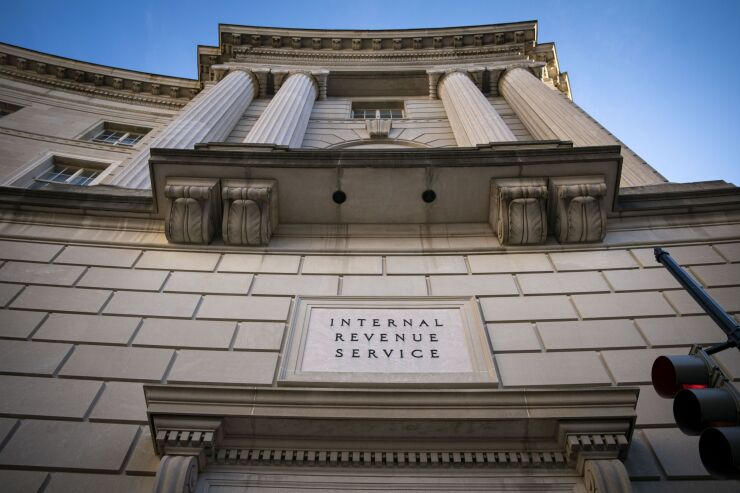The Internal Revenue Service has been slow in processing employer tax credits and tax refunds that businesses were supposed to receive to cope with the pandemic, according to a new report.
The
They stem in part from legislative changes passed by Congress that prompted many businesses and their tax preparers to file amended returns. Employers that were entitled to COVID-19-related tax credits that didn't claim them on their original Form 941, "Employer's Quarterly Federal Tax Return," or that wanted to increase the amount they originally claimed filed a Form 941-X, "Adjusted Employer's Quarterly Federal Tax Return or Claim for Refund," to reduce their tax liability and receive a direct payment resulting from any refundable credit amount. However, the timing of the various legislative changes increased the number of Forms 941-X the IRS received from employers that wished to amend their original Form 941. That meant that as of Feb. 1, 2022, there were 447,435 of the Forms 941-X still in the queue, waiting to be processed.

The situation does not seem to have improved all that much so far this year. "Continued processing delays have prevented businesses from receiving pandemic relief benefits," said the report. "The IRS did not begin processing claims for qualified Sick and Family Leave Credits and the Employee Retention Credit for 12 months and claims for Social Security tax deferral for 16 months after the pandemic relief legislation was enacted. This was due to a lack of updated programming and procedural guidance. A lack of training, erroneously suspended claims, and a lack of prioritization of claims contributed to additional delays processing claims."
TIGTA had other concerns with the IRS's processes for implementing retroactive termination of the Employee Retention Credit. On Nov. 15, 2021, President Biden signed into law the Infrastructure Investment and Jobs Act, which limited the availability of the Employee Retention Credit only to wages paid before Oct. 1, 2021, unless the employer is a "recovery startup business." To meet the definition, the business would need to begin operations after Feb. 15, 2020, and the average annual gross receipts for three years couldn't exceed $1 million. Businesses that weren't deemed to be a recovery startup business were no longer eligible for the credit for wages paid after Sept. 30, 2021. But because of the retroactive termination, some businesses no longer eligible to claim the credit may have already reduced their employment tax deposits in anticipation of claiming the credit for the fourth quarter of 2021, TIGTA noted. The report found the IRS actually doesn't have processes to verify a recovery startup business or effective controls to deny the Employee Retention Credit for nonrecovery startup businesses.
Another problem described in the report was that amended returns with Employee Retention Credit claims were not referred to the IRS's Examination function for review as required. TIGTA projected that 153 out of 209 amended returns with nonrefundable employer credit claims that met the referral criteria were not referred for examination as required, resulting in $45 million in potentially wrong nonrefundable employer tax credits being allowed. That happened because the IRS's internal guidance didn't include processes to refer claims with significant refundable employer credits to Examination for review. In addition, tax examiners didn't always refer the amended returns without a refundable tax credit, as required.
TIGTA made nine recommendations in the report to the IRS, including developing plans to prioritize processing backlogged claims, updating Examination referral criteria to include Forms 941-X with refundable credit claims, and developing a systemic process to identify Forms 941-X that meet referral criteria and alerting the employee when processing the claim of the need to refer the return to Examination for review. The IRS agreed with eight of the nine recommendations, but it didn't agree that more training was needed for employees related to referring Forms 941-X to Examination for review. IRS officials said they completed subsequent reviews of completed Form 941-X claims and determined no additional training was needed. However, TIGTA argued that the IRS's subsequent reviews didn't address the concerns identified in its report, pointing out that accounts management employees at the IRS cited unclear guidance and training as to why 73% of claims were not referred when required.
The IRS defended its efforts in responding to the continual legislative changes in recent years. "Although the last two years have been unprecedented with respect to evolving legislation, we expeditiously implemented extensive and complex legislative tax changes to ensure businesses received billions of dollars in credits and deferrals, providing needed relief to American employers," wrote Lia Colbert, commissioner of the IRS's Small Business/Self-Employed division, in response to the report.
She noted that upon enactment of the relief legislation, the IRS immediately established a cross-functional implementation team to review the legislative impact to its administrative processes and to develop extensive programming changes in its systems for processing the claims. "The IRS successfully paid out over $68 billion in employer credits to 1.2 million taxpayers," she added.





